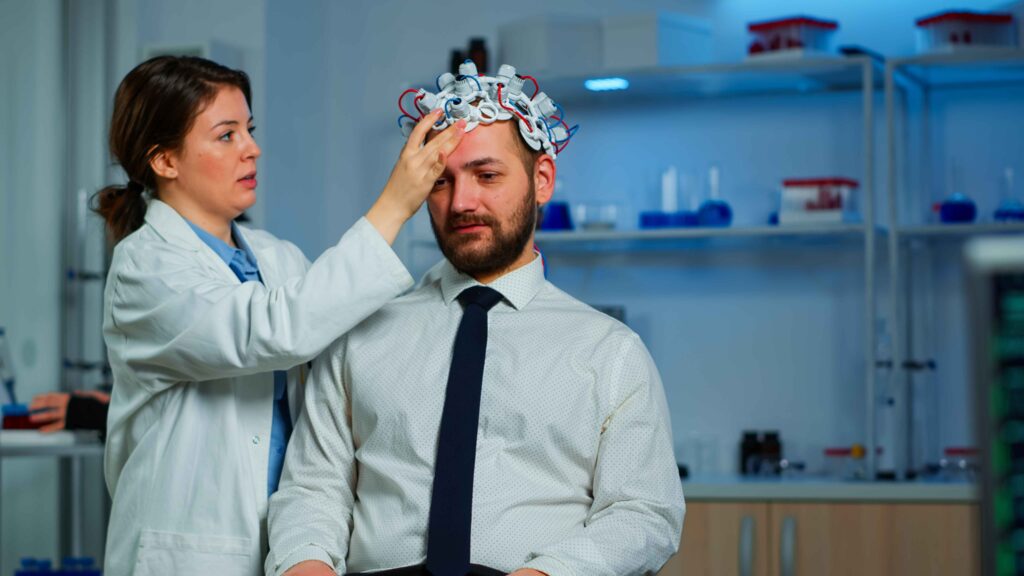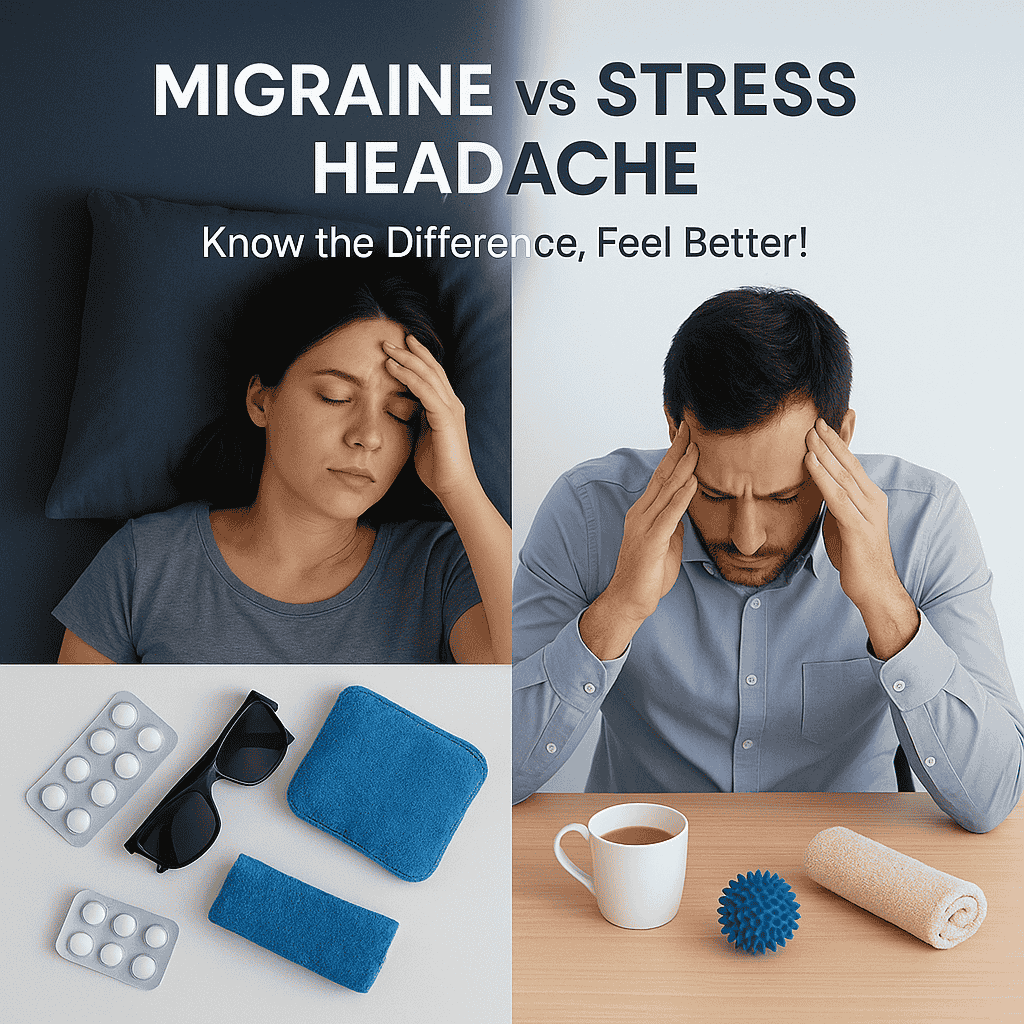We all experience headaches at some point – after a long day, during emotional stress, or due to irregular sleep. But not all headaches are the same. Two of the most common types are migraines and stress headaches (also called tension headaches).
While both cause pain, the triggers, symptoms, and treatments can vary significantly. Understanding these differences can help you choose the right remedy—and avoid unnecessary suffering. Let’s break it down, Migraine vs Stress Headache in a simple way

Table of Contents
Migraine vs Stress Headache – Key Differences
1. Pain Type & Location
| Feature | Migraine | Stress Headache |
| Pain nature | Throbbing or pulsating | Dull, tight, pressure-like |
| Location | Usually one side of the head | Both sides of the head or a band-like pattern |
| Intensity | Moderate to severe | Usually, one side of the head |
2. Duration
- Migraine: Can last 4 to 72 hours if untreated.
- Stress Headache: Usually lasts 30 minutes to a few hours, sometimes longer.
3. Associated Symptoms
| Symptom | Migraine | Stress Headache |
| Nausea or vomiting | ✅ Common | ❌ Rare |
| Sensitivity to light/sound | ✅ Very common | ❌ Uncommon |
| Aura (visual disturbance) | ✅ In some cases | ❌ Never |
| Muscle tightness | ❌ Not a feature | ✅ Often present |
4. Migraine vs Stress Headache Triggers
Migraine Triggers:
- Skipping meals
- Hormonal changes
- Bright lights
- Loud noises
- Certain foods (chocolate, cheese, red wine)
- Weather changes
Stress Headache Triggers:
- Emotional stress
- Poor posture
- Lack of sleep
- Eye strain
- Dehydration
5. Relief & Treatment
| Treatment | Migraine | Stress Headache |
| Medications | Triptans, pain relievers, anti-nausea | Simple pain relievers (paracetamol, ibuprofen) |
| Lifestyle changes | Avoid triggers, maintain routine | Stress management, posture correction |
| Home remedies | Cold compress, dark room | Triptans, pain relievers, and anti-nausea |

What Causes Migraine vs Stress Headaches?
Causes of Migraine:
Migraines are believed to be a neurological condition involving changes in brain activity, nerves, and blood vessels. Common underlying causes include:
- Disrupted brain function that alters nerve communication and blood flow patterns
- Genetics – if a close relative suffers from migraines, your risk increases
- Hormonal fluctuations, especially in women (e.g., during menstruation or menopause)
- Neurochemical imbalances – including low serotonin levels
- Inflammation in brain pathways
Causes of Stress (Tension) Headaches:
Tension headaches are usually due to muscle contractions in the head and neck region, often triggered by:
- Mental or emotional stress
- Physical fatigue or overexertion
- Jaw clenching or teeth grinding (bruxism)
- Poor posture while sitting or working
- Skipping meals or dehydration
Natural Remedies & Lifestyle Changes
🌟 For Migraine:
- Maintain a regular sleep schedule
- Avoid trigger foods (aged cheese, caffeine, MSG, etc.)
- Keep a migraine diary to track symptoms and triggers
- Try magnesium or riboflavin supplements (consult doctor)
- Use a cold compress on the forehead
- Practice yoga, meditation, or progressive muscle relaxation
🌟 For Stress Headache:
- Practice deep breathing or mindfulness
- Ensure proper hydration
- Take short breaks during long screen time
- Place a warm cloth on your neck to ease muscle tension and promote relaxation
- Get regular aerobic exercise like walking or swimming
Use aromatherapy oils like lavender or peppermint
Migraine in Women – Why It’s More Common
- Women are about three times more likely to experience migraines compared to men.
- Hormonal shifts during periods, pregnancy, or menopause can trigger migraines.
- Women are also more likely to report migraines with aura.
💡 Tip: Track migraines using a calendar to connect them with your menstrual cycle. Ask your doctor if you need hormonal migraine treatment.

Migraine vs Stress Headache (FAQs)
Q1: How do I know if it’s a migraine or just a regular headache?
Q2: Can stress cause migraines?
Q3: Are migraines dangerous?
Q4: When should I see a doctor?
1. Headaches are very frequent or intense
2. Over-the-counter meds don’t help
3. You experience vision changes or weakness
You feel confused or faint
Q5: Can I treat both with the same medicine?
Conclusion: Listen to Your Head – Literally!
Headaches can be frustrating, but understanding the type of pain you’re experiencing is the first step toward relief. Whether it’s the dull ache of a stress headache or the pounding pain of a migraine, you don’t have to suffer in silence.
-> Key takeaway:
Identify your symptoms, manage your triggers, and seek medical guidance if needed.
Because the better you understand your headache, the faster you can beat it.











1 thought on “Migraine vs Stress Headache – Know the Difference & Get the Right Relief”